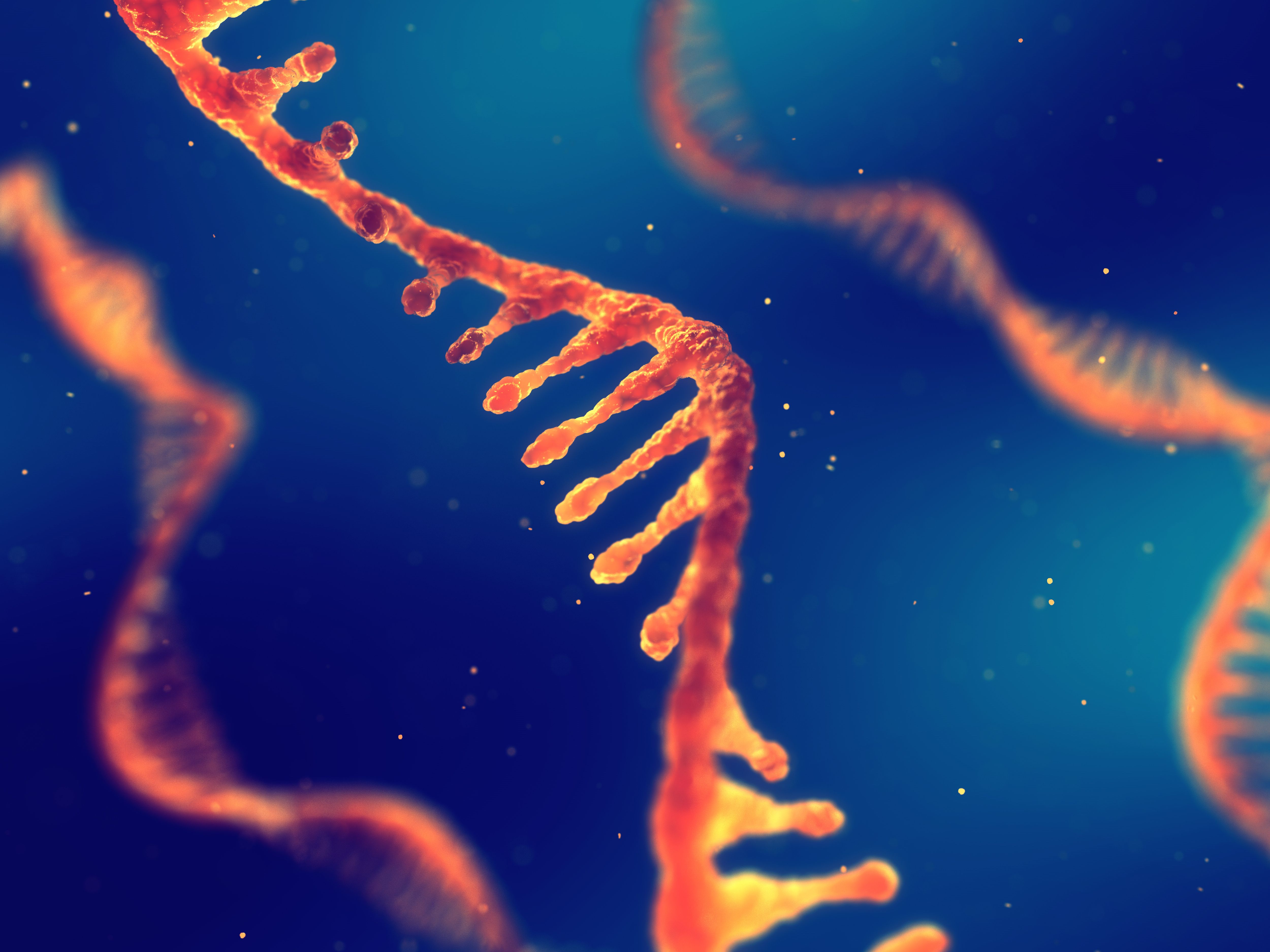- Center on Health Equity & Access
- Clinical
- Health Care Cost
- Health Care Delivery
- Insurance
- Policy
- Technology
- Value-Based Care
Lipopolymer-Delivered RNA Interference Shows Promise Against FLT3-Mutated AML
Investigators say adding RNA interference (RNAi) therapy to current treatment modalities may improve outcomes in patients with acute myeloid leukemia (AML) with internal tandem duplication in the fms-like tyrosine kinase 3 (FLT3) gene.
A new therapeutic approach using RNA interference (RNAi) shows promise as a potential therapy for patients with acute myeloid leukemia (AML) who have internal tandem duplication (ITD) in the fms-like tyrosine kinase 3 (FLT3) gene, according to a new study.
About 59% of cases of AML involve genetic alterations of signaling genes, and about half of those cases involve mutations in FLT3, wrote corresponding author Hasan Uludağ, PhD, of the University of Alberta, and colleagues, in the journal Acta Biomateriala.1
Lipopolymer-Delivered RNA Interference Shows Promise Against FLT3-Mutated AML | image credit: nobeastsofierce - stock.adobe.com

“FLT3 is a type III receptor tyrosine kinase which is widely expressed in both early myeloid and lymphoid progenitor cells and is crucial for normal hematopoiesis,” they wrote.
About one-quarter of newly diagnosed patients with AML have an ITD in the gene, which results in a “signaling cascade activating several downstream pro-survival pathways causing an amplification of cell proliferation and inhibition of apoptosis,” they said.
Tyrosine kinase inhibitors (TKIs) have become an important part of leukemia treatment, they noted, but only one multi-target first-generation TKI (midostaurin; Rydapt) is currently approved by the FDA for newly diagnosed patients with AML with FLT3 mutations. Among second-generation TKIs, gilteritinib (Xospata) is approved for patients with relapsed or refractory FLT3-mutated AML.
Still, Uludağ and colleagues said despite the emergence of FLT3 TKIs, patients still face significant challenges, including drug resistance, short remission periods, and high relapse rates. They said new strategies are needed to allow for more personalized treatment approaches for these patients.
One possible strategy, they said, is RNAi mediated by short interfering RNA (siRNA), which can be customized to target particular leukemic driving oncogenes. However, they said the success of the strategy depends on its delivery vehicle.
“While viral vectors are efficient at delivering RNA, they are prone to eliciting a lethal immune response and inflammation, limiting their clinical utility,” they noted.
A number of other approaches, including using lipid/liposome-based transfection reagents as carriers, have also been examined, though the authors said those have tradeoffs, as well.
Uludağ and colleagues previously showed that lipid-modified low molecular weight polyethyleneimine polymers, known as lipopolymers, were effective as siRNA carriers in settings such as chronic myeloid leukemia, among others.2 However, they said the approach has not yet been evaluated as a therapeutic option in FLT3-ITD cell lines.
To investigate the matter, the authors treated FLT3-ITD-positive AML cell lines with FLT3 siRNA (siFLT3) nanocomplexes, and found a significant reduction in cell proliferation rates, as well as induction of apoptosis.1 They said a downregulation of the FLT3 gene was accompanied by a reduction in FLT3 protein levels.
They also found an apparent reduction in leukemic stem cells in primary AML samples, which they said suggests the approach may help eradicate clonogenic recovery of therapy-persistent, relapse-initiating leukemic cells.
To see whether the lipopolymer/siFLT3 complexes had an impact outside of their intended effect, the investigators tested their interaction with peripheral blood mononuclear cells from healthy controls. They found an absence of a molecular response, suggesting a “passive sensitivity” toward malignant cells.
When they combined their complexes with daunorubicin and gilteritinib, the result was a “significant augmentation of anti-leukemic activity.” There was also a significant impact when siFLT3 complexes were combined with midostaurin, they said, though the impact was more modest.
“Taken together, this study provides proof-of-concept that lipopolymer-mediated RNAi is a promising strategy and siFLT3 complexes can serve as an additional tool in the armory against FLT3-ITD positive AML,” they concluded.
References:
- Ansari AS, Kucharski C, Kc R, et al. Lipopolymer/siRNA complexes engineered for optimal molecular and functional response with chemotherapy in FLT3-mutated acute myeloid leukemia. Acta Biomater. Published online September 3, 2024. doi:10.1016/j.actbio.2024.08.053
- Remant KC, Thapa B, Valencia-Serna J, et al. Cholesterol grafted cationic lipopolymers: potential siRNA carriers for selective chronic myeloid leukemia therapy. J Biomed Mater Res A. 2020;108(3):565-580. doi:10.1002/jbm.a.36837
